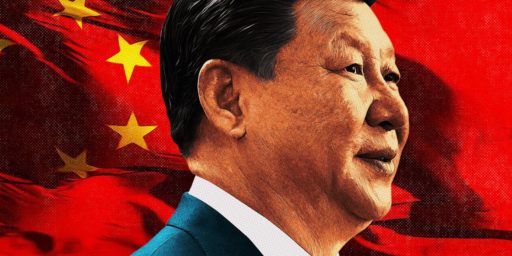The More Things Change… (Argentine Debt Edition)
Steven L. Taylor
·
Tuesday, February 18, 2014
·
8 comments
Via the BBC: Argentina tries to delay $1.3bn repayment to creditors
Argentina will on Tuesday petition the US courts to try to stall a $1.3bn repayment to its creditors.
If the petition to the Supreme Court is not successful, the country risks triggering a default and debt crisis.
[…]
Argentina has already defaulted on its debt three times in its history. The last occasion, in 2002, brought the country to its knees.
Meanwhile, inflation is 25% and the peso fell 19% in January.

About Steven L. Taylor
Steven L. Taylor is a Professor of Political Science and a College of Arts and Sciences Dean. His main areas of expertise include parties, elections, and the institutional design of democracies. His most recent book is the co-authored
A Different Democracy: American Government in a 31-Country Perspective. He earned his Ph.D. from the University of Texas and his BA from the University of California, Irvine. He has been blogging since 2003 (originally at the now defunct Poliblog).
Follow Steven on
Twitter





And yet, Argentina is still here. Argentines still live their lives, buy and sell things. Banks still beat a path to their doors to lend them money.
Considering that the people bringing this case in the law courts are a bunch of hedge funds who bought up Argentine debt when it was cheap, cheap, cheap because of having already defaulted….
….I think I’ll root for injuries.
Argentina is a fascinating case study because they are at a different place in the cycle than the US currently is…opposite actually.
We are in the midst of a demand crisis…output and prices are low. We should be implementing policies that promote growth. Contrary to failed Republican economic theory, slashing Government and Public Sector spending does not promote growth.
Argentina is suffering from a supply-side crisis…fixed supplies are causing prices to rise (and hence inflation). This is essentially what Volker (appointed by Carter, fired by Reagan) overcame in the early 80’s.
Public policy must be flexible and react to actual circumstances. Republicans apparently…based on their own words and actions… are not smart enough to grasp this…their answer for everything is exactly the same…cut taxes.
@DC Loser: I have been to Argentina several times as a tourist and I have a friend living an expat life in northern Patagonia. The current crises is affecting the buying power of middle class Argentinos. Agriculture is a big part of their economy with soybean exports the biggest player. Right now, the world price of soybeans is on a downward trend. The Argentinos have reacted by increasing their acreage. The harvest should be coming in pretty soon.
The largest soybean producer is the USA. If the world price is low this fall, it could impact the US economy as well.
I just learned that some Porteños (the slang term for BA natives) have developed an app for iPhone that allows you to check grocery store prices against other stores and against the official price control measures. The app allows for immediate reporting of offending stores to the government.
Also, there efforts to organize no buy days of grocery and fuel to protest the price increases.
All sounds pretty messed up to me.
I don´t think that Argentina should pay these crooks, unless they pay their other debtors. Besides that, I think that countries should be allowed to enter bankruptcy.
@Andre Kenji: well they’ve already done a default hat trick- what else could happen there? too bad really, beautiful country-how could they screw that up, and then again and again and so on…..?
didn’t some creditor claim a naval vessel in port a few years back?
@bill: The default trick only happened after years of stagnation because the dollarization under Menem destroyed the competitiveness of the Argentinian economy. It wasn´t an easy decision.
By the way, since there is Mercosur, it´s pretty easy to find manufactured good with labels in both Spanish and Portuguese, meaning that they are distributed both in Argentina, Uruguay, Paraguay and Brazil on the same time. It´s difficult to find some manufactured good that´s produced in Argentina, everything is being produced here and sent there.
And yes, everyone that I know complains about how Buenos Aires is decadent.